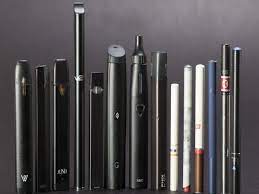E-Cigarettes : World Health Organization Statement

The World Health Organization (WHO) states that e-cigarettes, as consumer products, have not been proven effective for quitting tobacco use at the population level.
- E-cigarettes are battery-powered devices that heat a liquid into an inhalable aerosol.
- The liquid typically contains nicotine, propylene glycol, glycerin, flavourings, and other chemicals.
- Alternative Names E-cigarettes are also known as vape pens, vapes, electronic nicotine delivery systems (ENDS), electronic non-nicotine delivery systems (ENNDS), etc.
- Concerns E-cigarettes contain nicotine, causing addiction.
- E-cigarettes are highly addictive and harmful, with potential long-term health effects, including the generation of toxic substances linked to cancer and increased risks of heart and lung disorders
- Aerosols may contain metals (lead, chromium, nickel) and chemicals (formaldehyde)
- Children aged 13–15 are using e-cigarettes at rates higher than adults.
- Rates among 16–19-year-olds have doubled from 2017 to 2022.
- Nicotine A plant alkaloid found in tobacco and synthesized. It acts as a sedative and stimulant.
- Used in e-cigarettes with content up to 36 mg/mL,compared to 1.2 to 1.4 mg/mL in regular cigarettes which is recently classified as Class A poison in Karnataka.
- The Prohibition of Electronic Cigarette Act (PECA) 2019 in India prohibits the production, manufacture, import, export, transport, sale, distribution, storage, and advertisement of e-cigarettes.




